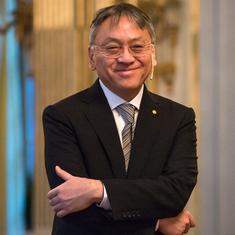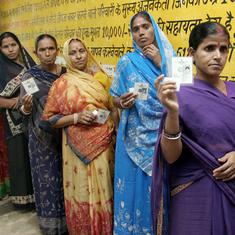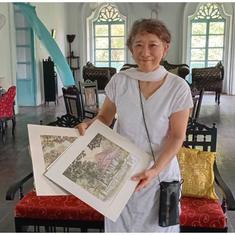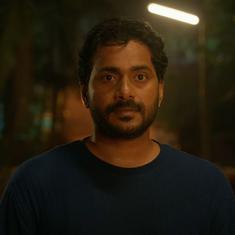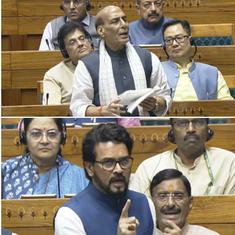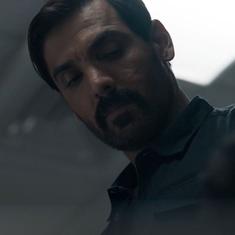Azhagiri was suspended from the party in January after he made statements against Stalin – his younger brother and heir apparent to Karunanidhi. Stalin is the man in charge of the party’s campaign and the decision to suspend Azhagiri is seen as his categorical reiteration that he will not accept insubordination, even from his brother. Since then, Azhagiri has openly declared that the DMK will lose and has also threatened to form his own party after the polls.
At stake are 39 Lok Sabha seats in Tamil Nadu, 27 of which the DMK-led alliance in the state won in the 2009 elections.
Despite media attention on this tussle, this battle between the brothers is neither new nor as important as it has been made out to be. As always, the final authority in the DMK is Karunanidhi and this situation is expected to continue as long as the 89-year-old scriptwriter is around. Neither son has the charisma or hold over the party to even challenge the octogenarian.
This is because Karunanidhi has refused to vacate the post of president of the party, which he has held since 1969. In the DMK party structure, the president is supreme and has complete command over the organisation. Over the last four-and-a-half decades, Karunanidhi has thwarted all his rivals within and has built a mass following that has made the DMK synonymous with himself.
Stalin has been the official heir apparent for over a decade. He is 61 years old, the second son and third amongst four siblings from the DMK chief’s second marriage. Sixty-three-year-old Azhagiri is the eldest of the four. Karunanidhi has six children from three marriages but the only ones who are politically active are Stalin, Azhagiri and Kanimozhi Karunanidhi, his only daughter from a third marriage.
Karunanidhi’s family has been a source of contention in the DMK for over two decades. As early as 1993, several DMK leaders opposed Stalin’s prominence and accused the Karunanidhi of playing dynastic politics. Stalin was elected MLA for the first time in 1989 and became president of the party’s youth wing. This is when Karunanidhi began projecting him as a possible successor. The man leading the anti-Stalin charge then was the powerful orator Vaiko, who split with the DMK to form the Marumamlarchi Dravida Munnetra Kazhagam. Vaiko was seen as a potential successor to Karunanidhi in the 1980s but his breakaway group failed to make an impact on the electorate. He has been struggling as a politician ever since, so his meeting with Azhagiri is unlikely to make an impact on the elections.
The rest of the old guard fell in line and reconciled to having Stalin as Karunanidhi’s successor. He was elected Mayor of Chennai in 1996 and made Deputy Chief Minister in the DMK government led by Karunanidhi in 2009. The same year he was also made treasurer of the party. This was significant as Karunanidhi himself was treasurer of the party before becoming president.
It is a tradition in Indian families that the elder son is chosen heir but, in Azhagiri’s case he was “too much of a brute rebel and lacked political prudence from the start”, according to a senior DMK leader, who requested anonymity. Azhagiri was sent to manage the party’s official newspaper, Murasoli, in the southern city of Madurai in 1972, and that city has been his base ever since. Azhagiri was in political obscurity till 2001, when he fielded rebel candidates against the DMK. This was one of the reasons for the party’s defeat in those elections to the All India Anna Dravida Munnetra Kazhagam, led by J Jayalalithaa.
With that defeat, the battle between Stalin and Azhagiri became more intense. In 2003, Azhagiri was arrested in the murder of a senior DMK leader Tha Kiruttinan, who was close to Stalin. He was acquitted of the charges by a trial court five years later. “Azhagiri was always known for using muscle power and threats to get his way,” said senior journalist R.K. Radhakrishnan of The Hindu.
In the same year, 2003, Karunanidhi’s nephew and senior party leader Murasoli Maran died after severe health problems. Maran, who was 69 at the time of his death, had been the DMK chief’s most powerful political confidant since the 1950s. He was a decisive authority in the party, and as Union commerce minister in the National Democratic Alliance government he had a complete authority over decisions regarding the party’s alliances in Delhi. Maran enjoyed a close association with prime minister Atal Behari Vajpayee but after his death, the DMK parted ways with the Bharatiya Janata Party and moved towards an alliance with the Congress-led United Progressive Alliance.
Maran’s second son Dayanidhi was chosen as his political heir. Dayanidhi was given Muraoli Maran’s Chennai central seat in the 2004 elections and was made Union Telecom Minister in 2004 after the DMK came to power as part of the UPA.
The space given to Dayanidhi, who belonged to a younger generation in the family, resulted in Azhagiri demanding a greater role. This also led Kanimozhi to make her own political demands.
In 2007, the family saw a bitter internal battle. The triggering point was an opinion poll in the Maran family-owned newspaper Dinakaran, which suggested that Stalin was the people’s choice to succeed Karunanidhi. The poll was published despite Karunanidhi asking the party not to discuss the succession issue. Azhagiri’s supporters attacked the paper’s offices in Madurai, leading to the death of an employee.
In the subsequent conflict, Dayanidhi Maran lost out and had to step down as telecom minister. A Raja, a Dalit loyalist, replaced him. Raja was backed by Kanimozhi, who in turn was supported by Azhagiri. Soon after this Kanimozhi was made a Rajya Sabha MP and started playing an active role in the party’s affairs with its ally the Congress.
In the 2009 general elections, Azhagiri contested himself and became Union fertilizers minister. He aspired to be the face of the DMK in Delhi. This was the high point in Azhagiri’s political career, but it soon came to an end. The eruption of the 2G scam related to the allotment of telecom spectrum resulted in Kanimozhi and A Raja being arrested. The DMK, which had driven a hard bargain with the Congress to get that cabinet berth, had lost its hold completely. Adding to this, Azhagiri himself failed to perform as a Union minister. He rarely attended parliament and never answered questions posed to his ministry. Several Congress leaders, including Pranab Mukherjee, expressed their displeasure with Azhagiri to the DMK chief.
In Tamil Nadu, as a direct fall out of the 2G scam, the DMK lost power yet again to Jayalalithaa in 2011 and in this moment, there was constant reshuffling of internal equations between Azhagiri, Maran, Stalin and Kanimozhi.
Ironically, the biggest gainer in all this was Stalin. In public perception at least, he ensured that Kanimozhi was accorded the blame for the scam and that Azhagiri became the face of the party’s failures in Delhi, keeping his own image unaffected by the crisis. With Karunanidhi ageing and the party losing power, Stalin became the face of a defeated party’s campaign for recovery. “It is undisputed that Stalin is our leader and the man leading us from the front,” said Kanimozhi when asked about the rivalry between her brothers.
In these elections, Stalin has been the DMK’s principal campaigner. As he canvasses for votes in open-top jeeps, candidates stand behind him with folded hands. In Dravidian political theatre, this is considered an acceptance of reverence to a leader and has been a trademark of AIADMK chief Jayalalithaa’s campaign. Stalin has also been the man holding a veto on crucial decision like alliances. It is believed that Stalin ruled out any truck with the Congress and pushed the party to go it alone.
It is in this backdrop that a miffed Azhagiri speaking in Madurai last on Monday announced that the DMK would lose these elections that he would launch a new party after the elections. “None of it matters,” said Damodaran Prakash of the Tamil magazine Nakeeran. “It is anyway a difficult election and Azhagiri is at best just a rabble rouser. Stalin himself may prefer the party to be out of power in Delhi for a while to keep the likes of Maran, Azhagiri and Kanimozhi irrelevant.”
Stalin’s only objective seems to be to consolidate power over the state and over the DMK. This may explain why he ensured the DMK entered these elections without an ally for the first time since 1957. “He wants to test the party’s strength alone,” said a senior DMK leader and Stalin confidante, who requested anonymity. “It is a risk worth taking for him as he is preparing the field for 2016 assembly polls not 2014 Lok Sabha.” In fact, this is the first time in over five decades that both major Dravidian parties have entered an election without an ally.
Inside the DMK, the battle between his sons seems to have left Karunanidhi remarkably unruffled. His party has long called Stalin “Thalapathy” or “General”, and the son is now finally playing that part. Azhagiri’s followers have long called him “Anja nenjar” or “Braveheart” but, at the moment, he is a rebel without a party. In the end, the father remains the most powerful scriptwriter of them all. He has survived several challenges from within and outside the party. He knows he will remain President of the DMK and stay the final authority even if, led by Thalapathy, the party faces a defeat in these elections and Braveheart runs out of steam.
